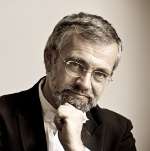Giuseppe Verdi’s Don Carlos has finally arrived, for the first time in the 21st century, as a much anticipated highlight of Opera Australia’s current season. It is a brilliant but problematic work which partly explains its numerous authorial reworkings. The audience in Sydney was offered the 1884 Italian language version in four acts, rather than five as in the 1867 première sung in French. The challenges start with the duration – almost four hours with only one interval in Sydney – and continue with numerous scene changes and demanding parts for all of the protagonists, the choir and the orchestra which are carefully laid out in the detailed score.
The company has decided to revive Elijah Moshinsky’s colourful and grandiose directorial work conceived 16 years ago. Around that time – but alas, not since then – Moshinsky was a regular guest director for OA, staging a whole string of wonderful new productions. He understands and follows Verdi’s cues of key importance regarding power and freedom, religious zeal and human sacrifice, enduring friendship and cowardly betrayal to a tee. Paul Brown’s stage designs and costumes are stunning and the images depicted on stage, like giant tableaux hanging in the Prado Museum, are never less than atmospheric and eye-catching. They begin with the dark hues of the monastery, followed later by a giant golden door and a majestic spiral road circling upwards on stage leading towards… well, was it heaven or the auto-da-fé? The meaning of the pious symbols is often ambiguous, probably deliberately so, and similarly it is never quite clear whether the ecclesiastical or royal powers gain control of the events.
Musical matters were safely led by Andrea Licata, a highly experienced conductor of the Italian repertoire. He reigned with confident and sweeping gestures, guaranteeing that the pace of the music never stopped and the musical idiom was authentic. This commanding artistic leadership seemed to come at a price though, as the conducting hands rarely indicated, let alone demanded the myriad of delicate details in Verdi’s superb score. Dynamic contrasts from both pit and stage were all too often reduced to an uncomfortably narrow range with a few notable exceptions such as the monks’ choir at the very beginning. But soon after, the duet of loyalty between Carlos and Rodrigo “Dio, che nell’alma infondere”, marked piano by the empathetic composer, was given the full might of two great sounds and, at every later occurrence of the famous melody, the same clichéd pull-back of the tempo (over the word “speme”). Throughout the night, the often menacingly soft orchestration, the odd accents, the unusual dark shades of musical colourisation rarely reached their desired effect. For example, in the sinister atmosphere of the auto-da-fé scene in Act II, or in the chilling dialogue between the King and the Grand Inquisitor at the beginning of Act III. The severe limitations of the acoustically unforgiving orchestral pit did not help matters, but it has to be said that the restricted sound, both in volume and colour, wasn’t necessarily the players’ fault. Even the committed playing of the cello solo accompanying Philip’s “Ella giammai m'amò” at the beginning of Act III struggled to be heard and enjoyed.
The standard of singing was high across the board, from the minor roles (Julie Lea Goodwin as the Voice from Heaven and Anna Dowsley as Tebaldo) to the protagonists. Three excellent basses represented clerical and royal power: David Parkin (the monk, alias Charles V), Daniel Sumegi (overwhelming not just in menace but at times also in volume as the Grand Inquisitor), and the vastly experienced Ferruccio Furlanetto who had already sung the role of the reigning King Philip II many times, including in Nicholas Hytner’s famous Covent Garden production. With well-judged musical intelligence, Furlettano rarely pushed for a large sound, but used tone colour, excellent articulation and his considerable stage presence to lend credit to his role.
José Carbó's Rodrigo livened up events whenever he stepped on stage with youthful energy and his final scene (“Per me giunto è il dì supremo”) was heartfelt and effective. His royal friend Carlos was performed by Diego Torre in great vocal condition, but seemed to overuse his voice at times. Milijana Nikolic in the role of Princess Eboli struggled with slight intonation problems initially, but blossomed into a genuine heroine while begging Elisabeth for forgiveness in Act III.
The outright star of the performance was Latonia Moore, an American soprano known and loved in Sydney for the title role of Aida both in-and-outdoors. As Elisabeth de Valois, she demonstrated unique control of vibrato, volume and poignant emotions, culminating in her aria (“Tu che le vanità”) in the final Act. Her moving struggle for love and happiness may have been hopeless, but her effortlessly graceful singing offered some of the most beautiful moments of the night.




